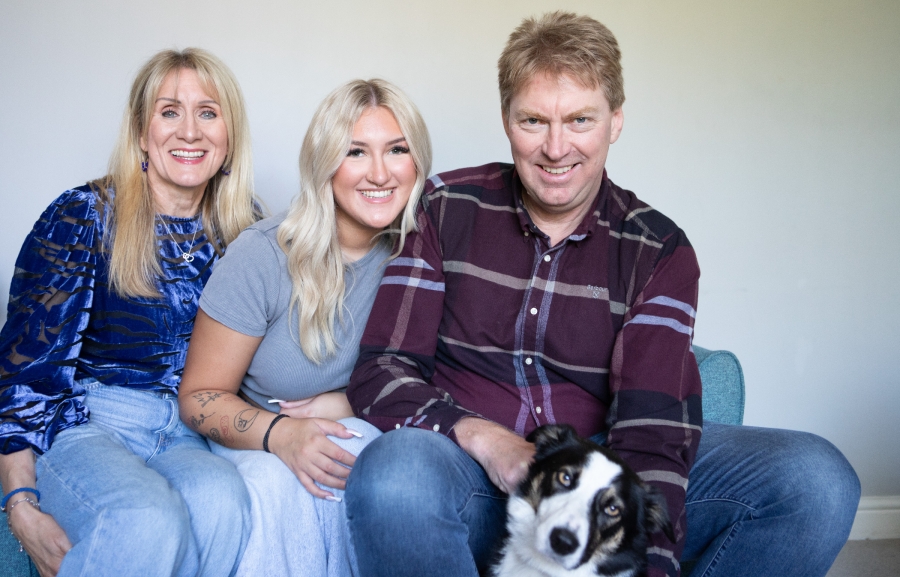Mackenzie, 20, has been under the care of our Early Intervention Service (EIS).
Set up nearly 20 years ago, it helps people who have experiences which are distressing and difficult to make sense of, which may lead to being at risk of psychosis for the first time, get the right help early and continue living the lives they want to lead.
The Lancashire EIS is for people aged between 14 and 64 years old who have recently been diagnosed with psychosis and for people who are having unusual experiences or difficulties and who may develop symptoms of psychosis. There are many reasons why a person might experience this, for example, they might have had a very difficult or traumatic experience, have used drugs or other substances, or they might be struggling with life’s challenges.
So what is psychosis? Psychosis is when people lose some contact with reality. This might involve seeing or hearing things that other people cannot see or hear (hallucinations) and believing things that are not actually true (delusions). It may also involve confused (disordered) thinking and speaking.
Mackenzie first started developing symptoms in September 2020 when she was only 16 during the COVID-19 pandemic. She was living in Gloucester studying at an equine college, which specialises in sports and was living in a residential house with around 120 people. As COVID-19 restrictions increased, Mackenzie found herself stuck in her room most of the day and was only allowed out for a cigarette break, becoming more and more isolated, which in turn increased her anxiety symptoms.
Mackenzie believes struggling with her weight played a part in her becoming mentally unwell, she was previously horse riding each day and not eating much, so weight and physical appearance played a part.
“I hardly left my room. All I did was sleep, I became nocturnal and isolation tipped me over the edge.”
Mackenzie’s family were crucial in supporting her and noticing her mental health was deteriorating.
Mackenzie said:
“Between January to April 2021, I was at home, there was nothing better to do with my time and I was doing lectures all day online.
I’d wake up at 9am and this is where I got really poorly, I’d go back to sleep, and then my friend would wake me up so I could rejoin the next lecture, and that was a vicious cycle for about four months, I hardly left my room. All I did was sleep and I became nocturnal and isolation tipped me over the edge.”
Her parents phoned her GP, concerned over Mackenzie’s mental health as she started to present with psychotic symptoms which included hearing voices and hallucinations.
“I’d wake my dad up in the middle of night saying someone is outside, go and check. It was that constant, I can’t remember how much I did this.”
Mackenzie saw her GP who eventually was able to get her on the right amount of medication for her symptoms. Things started moving in the right direction following a referral to our Children and Young People Mental Health Service who signposted and referred her to EIS. Mackenzie is now flourishing and has her own beauty business. She has also volunteered to deliver talks to other parents which she finds very fulfilling.
Mackenzie feels in control and knows how to manage as she continues to learn her coping mechanisms, which she has developed with EIS.
She said:
“Patrick, my care coordinator, said ‘your daughter is very poorly but we’ve seen it all before and we will get her better’ and that’s when my mum and dad felt relieved that I was getting the correct support.
Patrick also made me feel really understood, he wasn’t shocked about the things I was telling him including about suicidal thoughts and self-harm.”
After a few months getting her medication sorted, the team introduced family intervention/ therapy where her mum and dad (pictured above) could really get to understand, as when Mackenzie was at the height of her psychosis, they really struggled communicating with her as they didn’t know what to say and the right time to say it.
Mackenzie said:
“Family intervention was amazing, we had a guy called Ian who again is lovely, it was really chilled out which is what I needed.”
Care Co-ordinator Patrick Doherty has been working with Mackenzie for the last two years.
He said:
“My role is to guide a person and family through their journey, whilst offering advice, support, education and various interventions such as talking therapies, peer support, social support or medication therapies.
The aim is to promote recovery and for people to return to their life at a level of functioning they previously enjoyed. Thus reducing the distress and impact a psychosis can have on the person and family.”
Her advice is:
“Try and speak to people and look after yourself, look after your health, I know it can be so difficult but really try and prioritise yourself and try and speak to people.
It’s the little things, like brushing your teeth, showering; if you do these little steps, it creates one big step where it’s automatic to try and get a routine going.”

